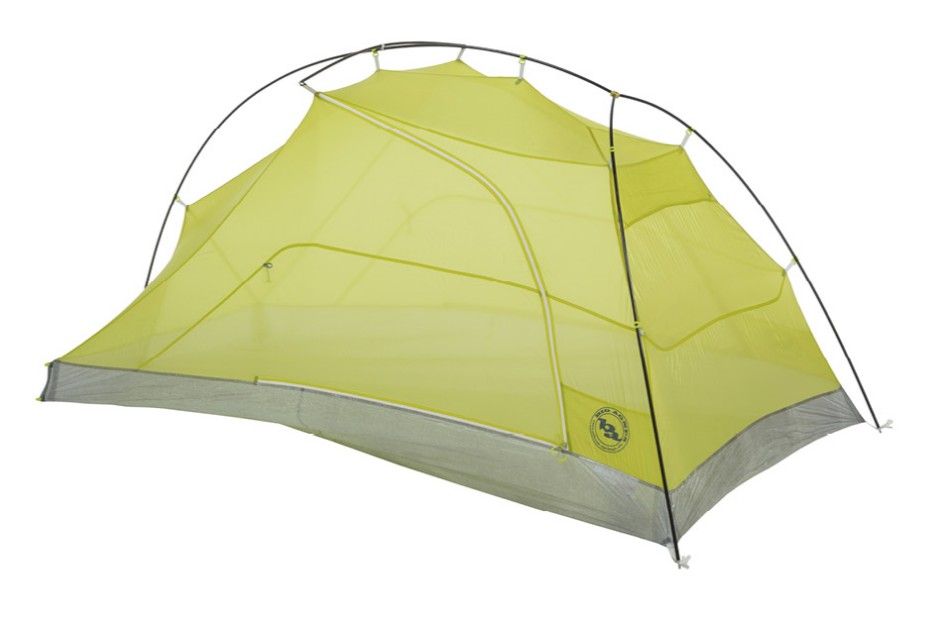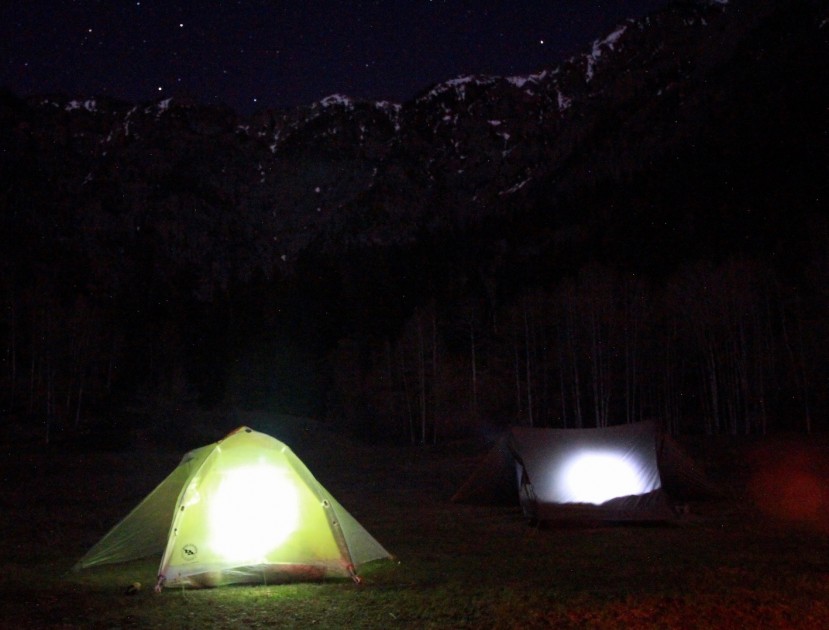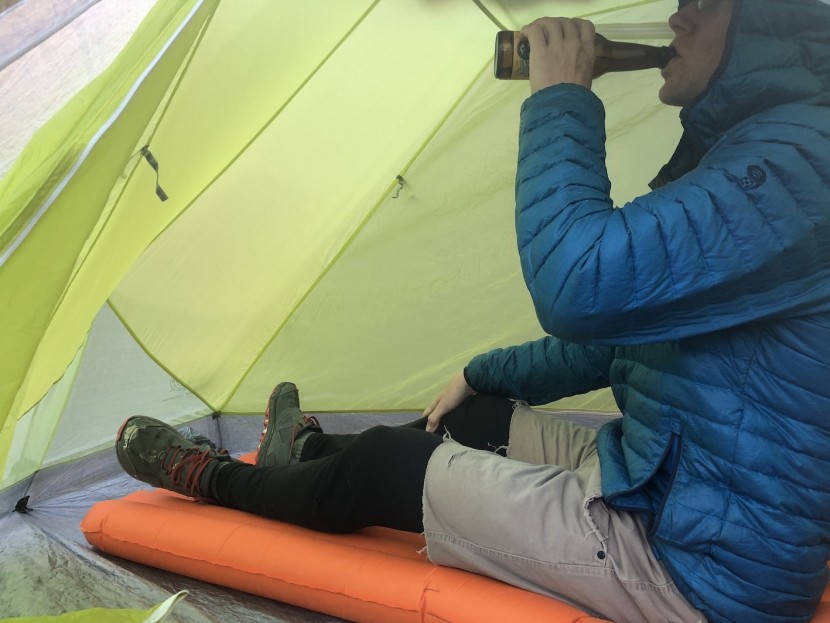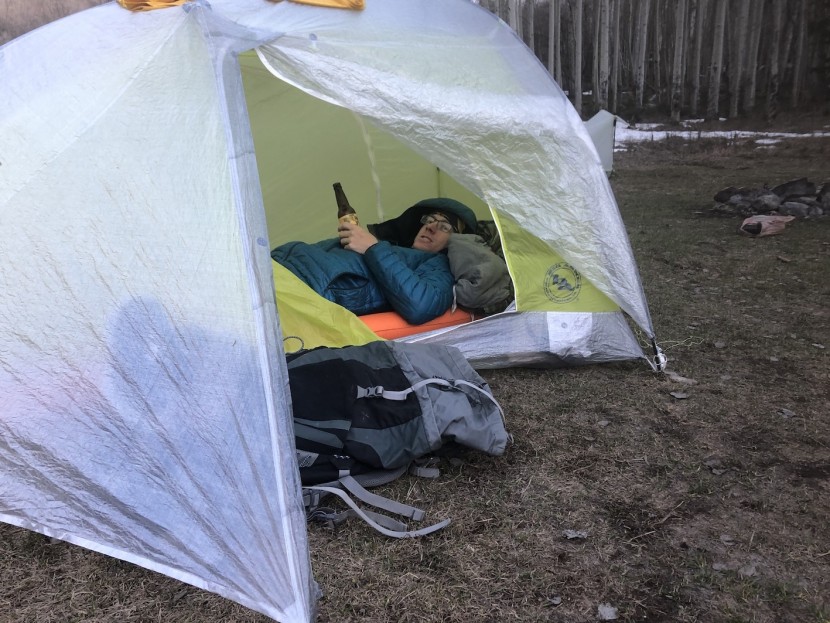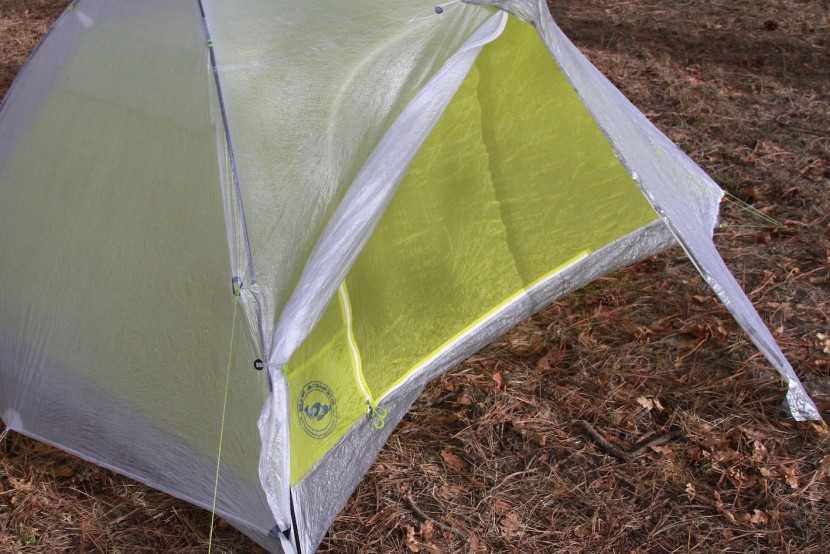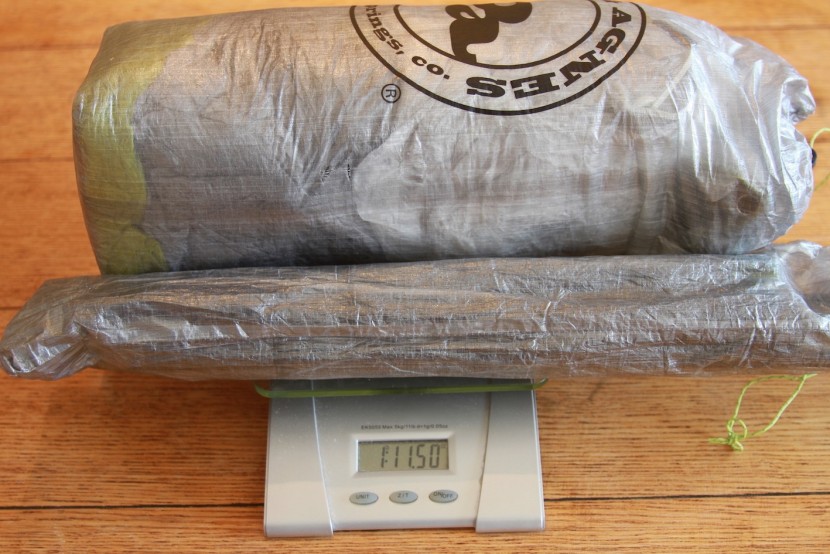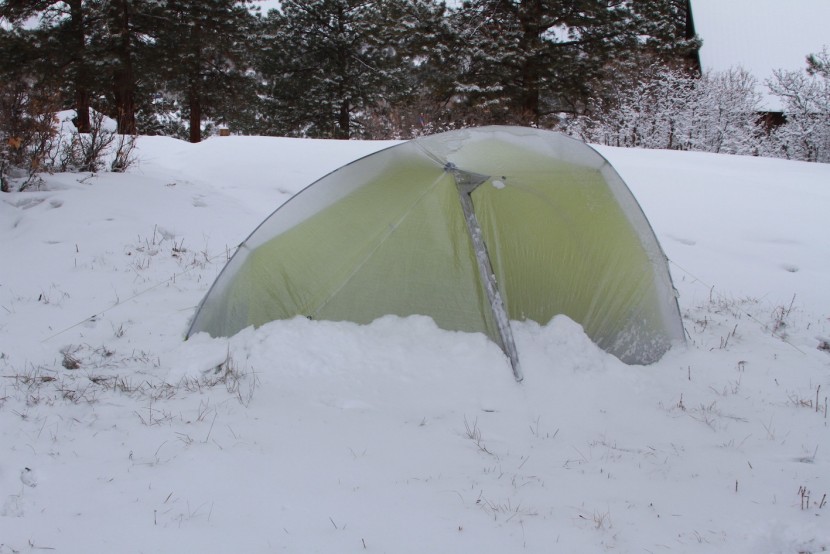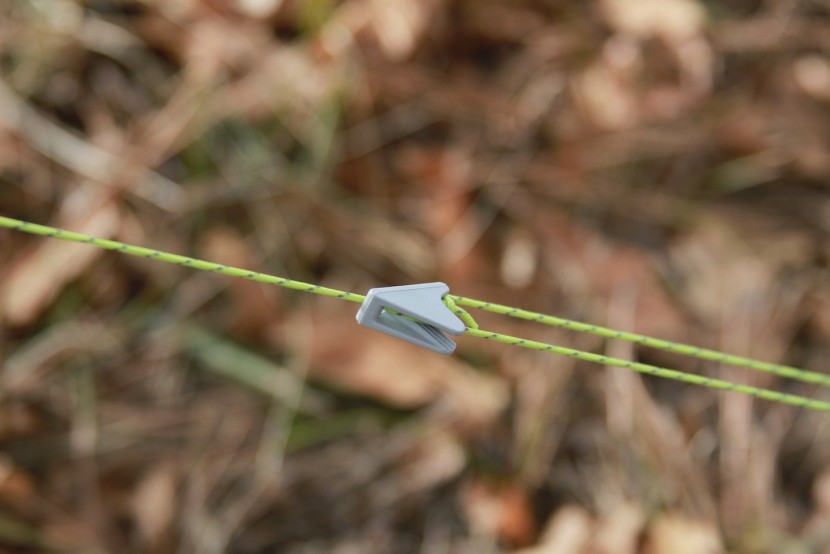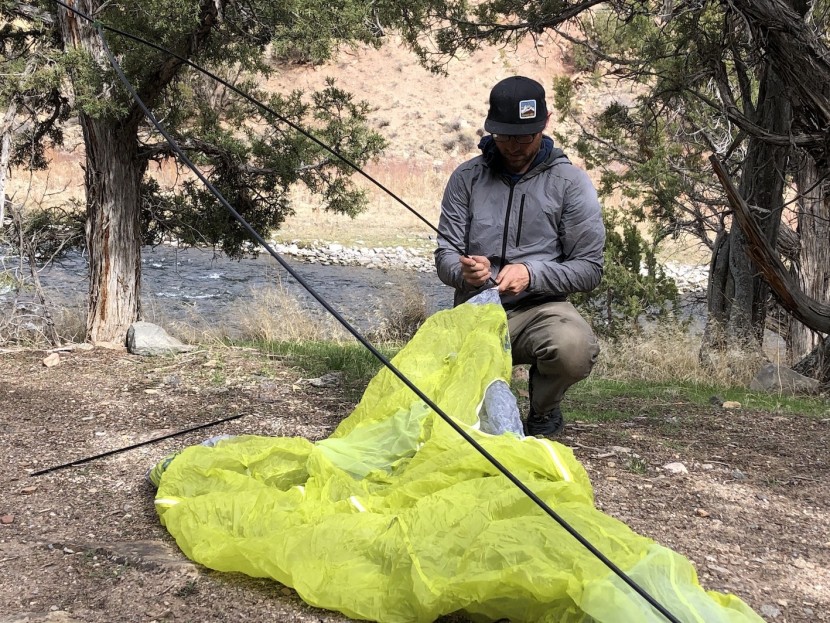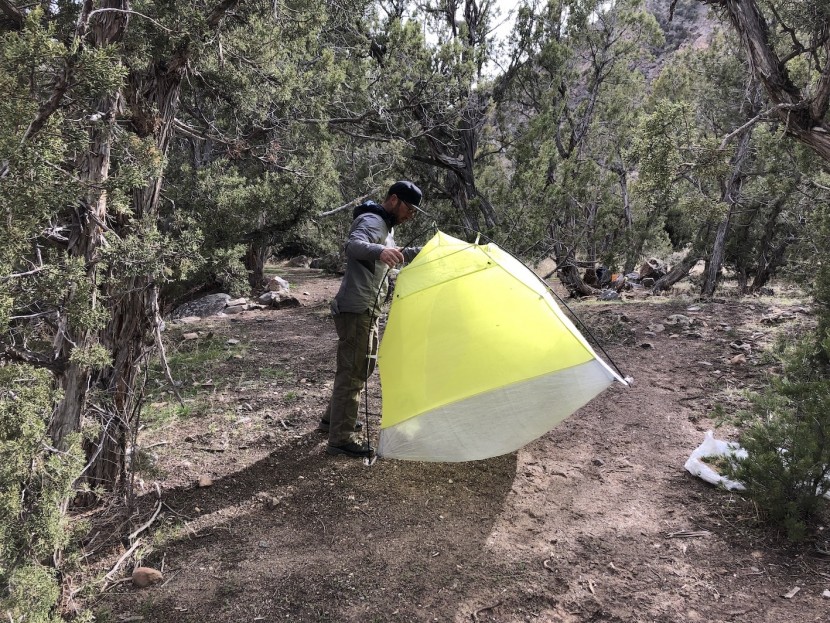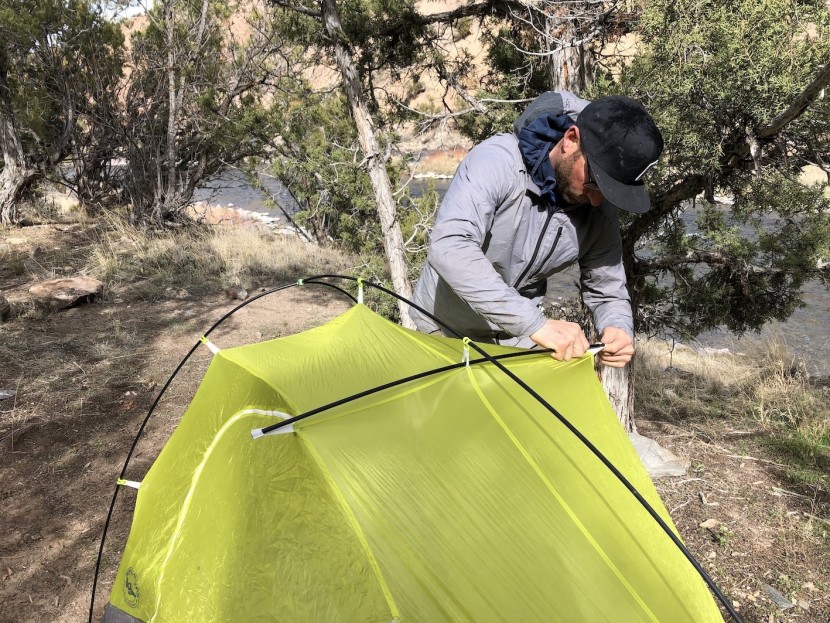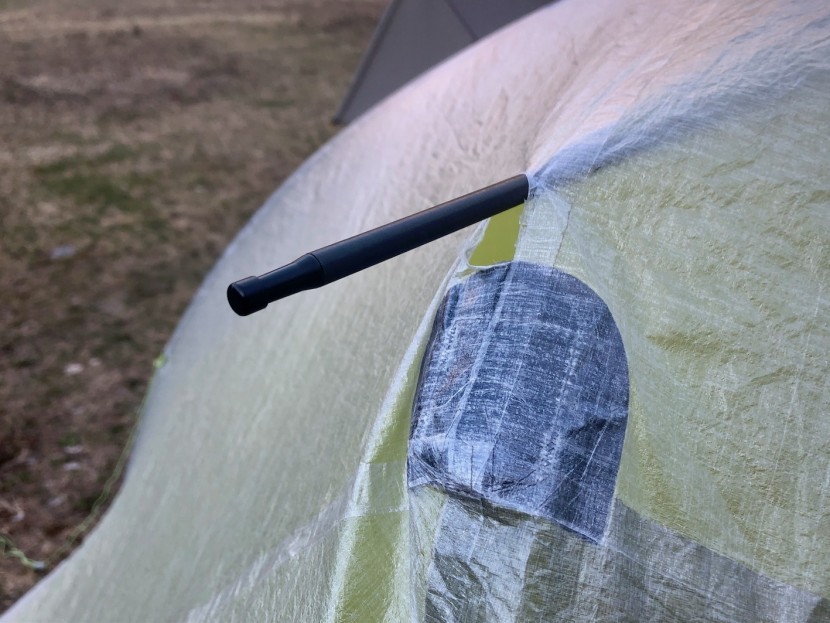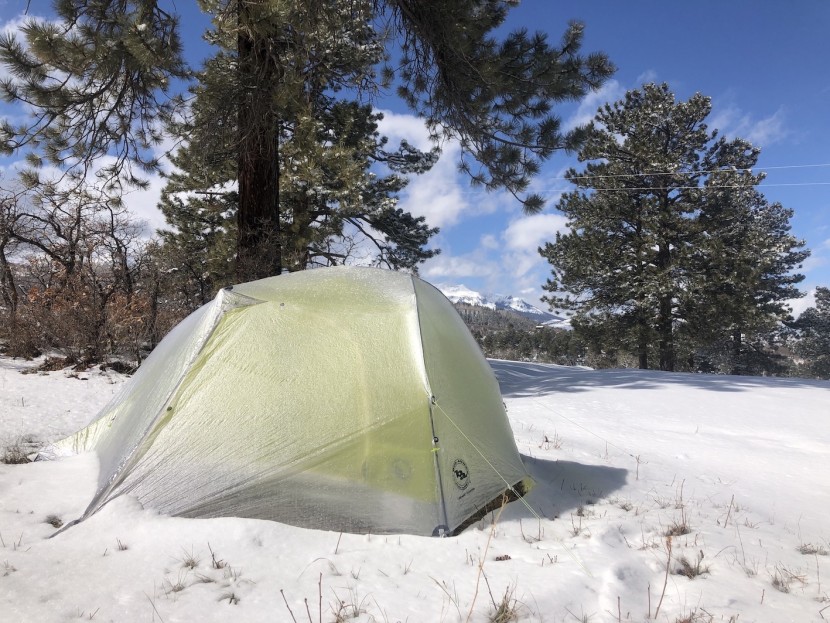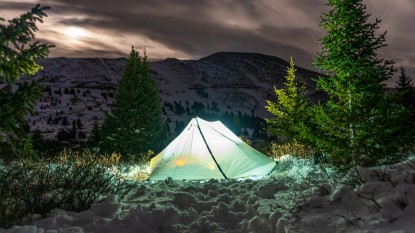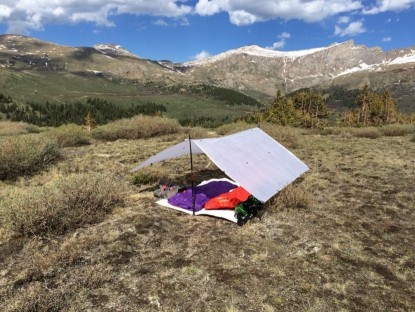Big Agnes Tiger Wall 2 Carbon Review
Our Verdict
Our Analysis and Test Results
The Big Agnes Tiger Wall 2 Carbon is our favorite semi-free standing dedicated pole tent. It's seriously weatherproof and only weighs 1.7 pounds! It's exceptionally liveable and easy to use. Unfortunately, its materials remind us of tissue paper with poor durability. The price is really only for those that can afford to spend a grand on a backpacking tent.
Livability
Highly liveable, comfortable, and easy to use, the double construction of this excellent performer offers excellent ventilation, no condensation build-up, and a good amount of space for two people. If you're seeking a tent that'll provide luxurious comfort, vestibules big enough for your gear and cooking, and a tent that you can sit up in, it fits the bill. It also comes in a one person design.
We took this tent with us on many adventures, and it quickly became a favorite. This is largely attributed to the 27 square feet of space, eight square feet of vestibule space (there are two vestibules), and headroom high enough to provide our 6-foot testers room to sit up fully. It has a peak height of 39", which is plenty of headroom.
We tested it sleeping with partners and our pups. The space at the head of the tent is wide enough (shoulder wise) for two people and a few other items. The length of the tent is long enough for those that are about 6'5, with its steeper walls at the base of the set-up.
The pockets are functional and easy to access. The vestibules aren't massive but are big enough to fit a pack and even cook a meal if the weather turns foul. All of its features are well thought out. For example, the tent doors that can easily be pulled back and stashed away without issue.
This tent earns a high score for liveability. If you're planning a long thru-hike and need a comfortable tent to camp, chill, and depend on, this is one of our favorites and a recommendation.
Weight
Big Agnes puts this tent into their “crazy light” category because…well…it's really lightweight. They do recommend using a footprint to prevent durability issues, which adds four ounces to the package.
Composed of almost tissue-paper like Dyneema Composite, it packs down to a ridiculously small size and only weighs 1.7 pounds with all its components. What's more is you can parse out the weight even further since it uses a double-wall tent design; just use the body or the vestibule when you want to go even lighter. If you're seeking a super lightweight and packable semi-freestanding pole tent, this one is one of our favorites. It'll easily fit into the tiniest of bags. Just be sure you have space to store the poles separately.
Weather Resistance
The double-wall construction and Dyneema composite fabrics are incredibly waterproof and weatherproof. While it's not a four-season tent, you could absolutely use it in wintery weather if you found yourself in a storm. The walls do not have mesh but are made of breathable Dyneema fabrics, making the structure rigid and consistent. It doesn't stretch, even when saturated. As a result, it doesn't flap and holds its shape in the face of even the biggest storms.
We tested this tent through three different snowstorms. During each, when the snow fell on the design, it immediately sluffed off. The exterior vestibule didn't saturate and stayed dry, keeping the interior of the tent nice and dry. The same observation was made when riding out a rainstorm. In the wind, the carbon poles held their shape, making us feel protected from all the elements. If you're seeking a tent that'll really hold up to the elements, this is one of our favorites.
Another stand out feature is its continuous body that offers a little water resistance. This provides additional functionality that very few tents have been able to achieve. Its potential for modularization is unique.
Adaptability
While Big Agnes says this tent is “freestanding”, it needs to be staked down for it to work. This semi-freestanding nature of this tent makes it less adaptable than a freestanding tent or even a tarp. You need to find a place that you can stake it down to ensure it performs to its full capacity.
We primarily tested in softer soils but also set it up over rocks and slabs. We found this to be incredibly difficult, but in the end, we managed to get it to stay taut and locked down after using additional cordage and rocks from around.
We also appreciate that this tent can be stripped of its vestibule to use just the body (which is also water-resistant) as a single-walled tent. Or you can take just the tarp and purchase a groundsheet to make an uber light shelter set-up. However, that requires buying their specific footprint that features the grommets you need to make it work.
Another important point needs to be made. This tent is extremely delicate in comparison to others. Terrain that is very prickly, sticky, or rugged could puncture and tear this tent, thus, site selection becomes even more important. Plus, without a footprint, even pine cones can pierce the floor material, which is a trade-off for its lightweight design.
Ease of Set-Up
This is one of the easiest and most intuitive tents we set up. We gave this to many friends to try and stake out without any guidance. Each was able to set up a tent with only a few issues. Set up can be completed in under two minutes when you're familiar with the instructions. Those that were learning took about four minutes the first time; super simple!
To set up, simply stake out all the corners. Next, insert the crossbar pole on the top of the tent. This is probably the hardest part and one of (what we perceive to be) the design flaws in this tent. You have to push this tiny pole into this little slot and then fix the other end to the other slot, which creates a horizontal bar on the top. When we first did this, we thought we were going to break the pole as it seems flimsy and thin. After we loaded the two poles in each grommet, each on opposite corners to make an X. Voila! You have a tent!
We asked a few friends to do this without instruction, and they all managed to figure it out pretty quickly. One friend put the crossbar in last and ended up pushing the bar too hard. It slipped from the reinforced nylon corner that it's supposed to sit in and actually ripped right through the fabric of the vestibule! We read online that this has happened with a handful of other users. We are astounded at the delicate nature of this tent. The lesson? Make sure you take your time setting it up. Big Agnes does warn on their site that experience and practice are needed to maintain its care. If you're up for the task and learn how to use it first, then you'll have a tent for a much longer period of time.
Value
This tent is astoundingly expensive! While it is super lightweight and those that need to have the lightest stuff might see the value, we struggle with it. Yes, it's lightweight. Yes, it features double-wall construction with ample living space. Yes, it's waterproof and has excellent features. Yes, it does an excellent job in the wind. However, it's lack of durability, tissue-paper like construction, and extreme care required simply does not justify this purchase for many. Many testers fell in love with this tent, but when they found out the price, they staggered back and said they wouldn't throw that kind of cash down. However, if you're intrigued, and find a good deal online, its performance (when taken care of) is stellar. Note though, the durability issues that Big Agnes mentions upfront in the description on their website, are quite real.
Conclusion
The Big Agnes Tiger Wall 2 Carbon is our favorite semi-free standing, winning our Editor's Choice award for its dedicated pole tent and super packable design. It's completely waterproof, ridiculously light, and seriously sophisticated. The price is sky high through, which turns many buyers off. Its thin, tissue paper-like construction lacks durability (as we've personally experienced), but, in the field, it's one of the most functional ultralight tests we've tested with some of the best modularization and versatility.


